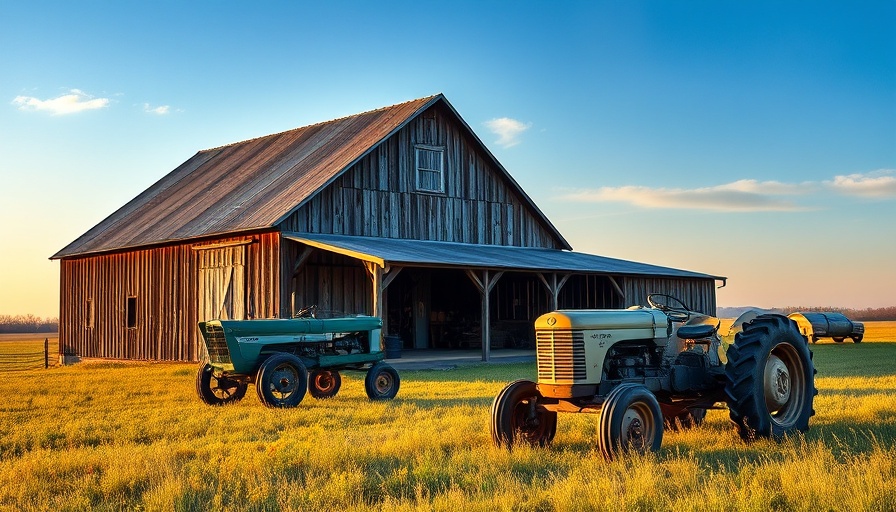
A Glimpse into North Texas’ Agricultural Past
This summer, Heritage Farmstead Museum is offering campers an immersive experience into the agrarian history of North Texas. Situated in Plano, the museum serves as a time capsule, showcasing the rural life that defined the Texas landscape in the late 19th and early 20th centuries. Participants will not only learn about farming techniques of yesteryear but also engage with hands-on activities that bring history to life.
Interactive Learning: The Core of Camp Experience
The curriculum for the museum's summer camp is designed to connect younger generations with the local heritage. Campers will explore the significance of agriculture in North Texas and gain insights into the lifestyle of early settlers. Through practical activities such as planting seeds, tending to gardens, and even caring for farm animals, participants will understand the vital role agriculture played in community development.
Why Agrarian History Matters Today
Understanding agrarian history is essential not only for historical context but also for drawing connections to modern-day challenges such as sustainability and local food production. As cities continue to expand, the knowledge of farming and caring for the land becomes increasingly relevant. This camp empowers attendees to appreciate the agricultural roots of their community and advocates for the importance of local food systems amidst a global economy.
Building Community Through Historic Engagement
The Heritage Farmstead Museum is more than just a historical site; it is a vibrant community hub. By engaging with local history, campers not only learn about the past but also cultivate a sense of belonging and responsibility towards their community. The lessons imparted during the camp foster an appreciation for hard work and an understanding of how agricultural practices influence contemporary lives.
Future Trends in Agricultural Education
As we look forward, the trend of integrating agricultural education into general curriculums is gaining momentum. With schools seeking ways to connect students with hands-on learning experiences, programs like those at Heritage Farmstead Museum offer a model for how to effectively engage students with their local history. This holistic approach not only nurtures knowledge but also inspires future generations to innovate in the realm of sustainable agriculture.
Common Misconceptions Addressed
Many people may view agrarian history as obsolete or irrelevant to their daily lives. However, the truth is that the principles of agriculture and community building are integral to contemporary discussions around food security, environmental issues, and cultural heritage. By understanding the past, participants can better grasp current agricultural practices and their implications for food and environmental justice.
Call to Action: Engage with Your Community
As you consider your own community's relationship to its agricultural past, take the time to explore local museums or farm programs in your area. Visit Heritage Farmstead Museum to experience firsthand the rich history of North Texas agriculture, and support initiatives that promote local food networks. By engaging with your local history, you contribute to a broader understanding of our collective future.
 Add Element
Add Element  Add Row
Add Row 



 Add Row
Add Row  Add
Add 


Write A Comment